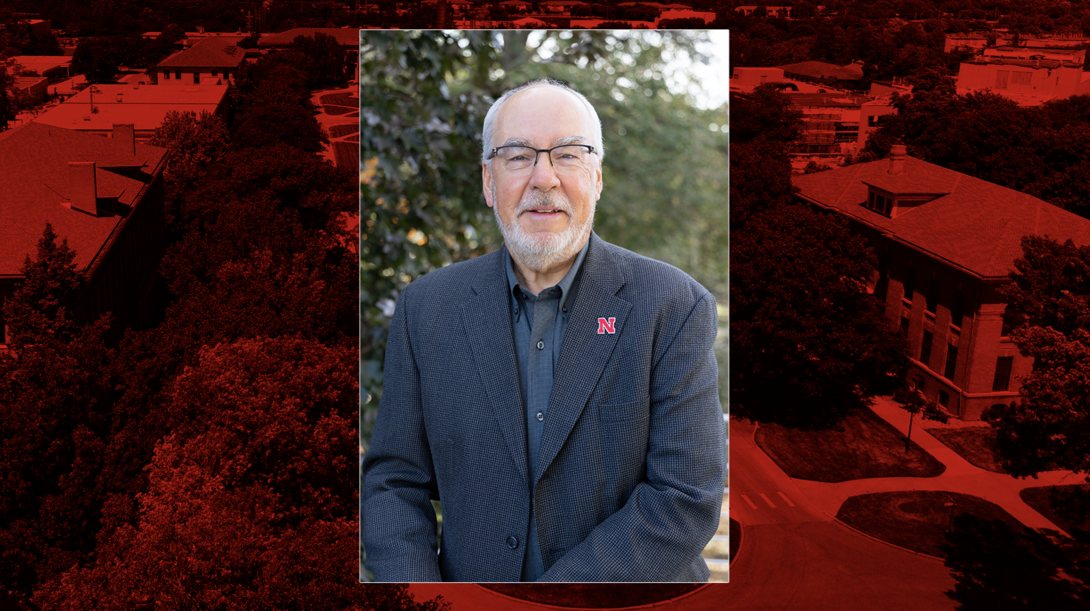
What is your background before coming to the University of Nebraska–Lincoln?
I started at UNL in August of 2000 via South Dakota State University in Brookings, South Dakota. At SDSU, I was the state-wide coordinator for the Career and Technical Education program. I worked with faculty on degree completion plans at the undergraduate level at the four technical institutes in South Dakota (Southeast Community College in Sioux Falls, Lake Area Technical Institute in Watertown, Mitchell Technical Institute in Mitchell, and Western Dakota Technical Institute in Rapid City. Before joining SDSU, I was on the faculty at the University of Wisconsin-Madison, where I directed the agricultural education teaching program. My undergraduate degree is from UNL, and upon graduation, I taught agricultural education at USD 470 in Arkansas City, Kansas for five years. During my high school teaching stint, I completed my MS degree from Kansas State University (Go Cats).
What is your position at the University of Nebraska–Lincoln?
I am a professor in the Department of Agricultural Leadership, Education and Communication with teaching responsibilities in our teacher education program at the undergraduate and graduate levels.
What drew you to the University of Nebraska–Lincoln?
Actually, a phone call. I had just been promoted and tenured at SDSU when I received a phone call from Lloyd Bell at UNL, asking me why I hadn’t applied for their open position in the Agricultural Education program within the ALEC Department. My family was well-established in our life in Brookings, but Lloyd encouraged me to apply for their position. I worked extensively with Lloyd during my doctoral program back in the late 80s and always valued his friendship and mentorship. Therefore, the opportunity to return to UNL and work with a great group of colleagues (and more importantly, great undergraduate and graduate students in the ALEC Department) in the agricultural education teacher education program was a straightforward decision for our family.
What aspect of working in an educational setting do you enjoy the most?
The realization that your primary audience you work with never ages when working with undergraduate students. Four to five years is a blip on the timeline of life. When you encounter new students each year, you learn just as much from them, related to technology and generational changes. It helps keep you on the “bleeding edge” of many advancements in education, lifestyles, and philosophical orientations.
Can you tell us more about ALEC 102 and what makes the class unique?
As a first-generation student from rural Nebraska in the late 1970s, I understand the significance of the first semester for many of our students who come to campus. In fact, I enrolled in the original ALEC 102 class during my first year, back in the fall of 1978, and had the honor of experiencing the famous Dr. Galen Dodge in one of his classes. This class, along with his teaching of the content and concepts, made all the difference for me that first semester on campus. Now, I come full circle, where I have the opportunity to teach our ALEC 102 class to UNL students. And what makes the class unique is that I have sat in their chairs when I was a first-year student on campus, so I can relate to what they are going through during those first weeks on campus.
What do you hope students take away from your ALEC 102 course?
Over the next 16 weeks, our instructors of ALEC 102 will challenge you, engage you in the theories and practices of leadership development and interpersonal skills, create situations that may be uncomfortable, but in a safe and respectful environment, experience tremendous growth and insight into who you are through a powerful service learning project, and to realize that through interdependent cooperation and collaboration with others they can become “difference makers” in their professional and personal lives.
What do you consider your greatest achievement?
My surviving being the stay-at-home parent for our first child for the first 18 months of her life. The demands, ups and downs, challenges with a newborn, the exhausting commitment to being a new parent, and the use of cloth diapers (yes, at a minimum, at least a dozen a day) gave me a new perspective on what an at-home parent goes through on a daily and hopefully consistent basis. While it was a tremendously challenging experience for me, I wouldn’t trade it for anything in the world. I learned more about myself and my family during those first 18 months of being an at-home parent, and to ask for help early and often.
What is something that most people don’t know about you?
I was a first-generation student when I attended the University of Nebraska-Lincoln back in the late 70s. I grew up on our family farm, where we used ditch irrigation and siphon tubes (which were a lot of fun), which helped build character and a solid work ethic.
What is your life like outside of work?
Traveling and seeing family across the country are priorities. With only two aunts remaining on my side of the family, we made intentional trips to visit my aunt in Ohio and my other aunt in Texas. Time slips away quickly, and at this point in our lives, we are still able to travel by driving to make our visits. While in Lincoln, we have family gatherings with our two children and visit our in-laws during vacation times and weekends. With my spouse (Laure) being a Frank Lloyd Wright enthusiast, we’ve had many vacations that involve visiting and touring his houses (especially his prairie style homes) across the country, including a visit to his Taliesin West National Historic Landmark in Arizona. We plan to visit Frank Lloyd Wright's Fallingwater residence in Pennsylvania and the Guggenheim Museum in New York City, hopefully on the same trip. Of course, fishing and golfing, when the opportunity arises, are pleasant surprises that I hope to take more advantage of in my next career.







